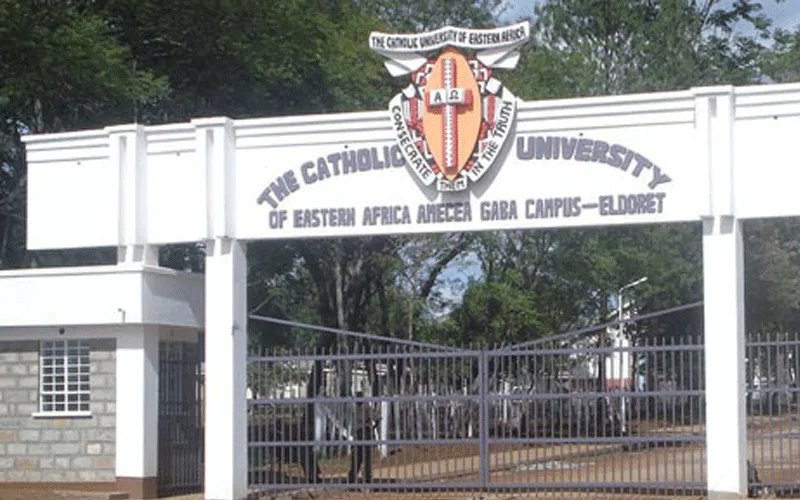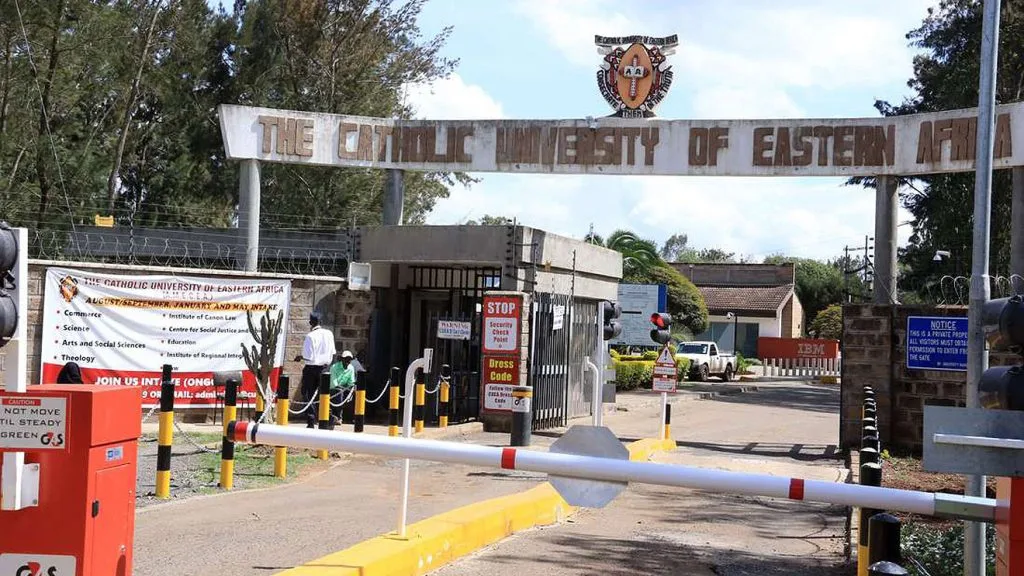Private institutions have begun raising their tuition costs for government-sponsored students, that they host, putting them at odds with the Ministry of Education.
Fee increases of up to Ksh20,000 per semester have been implemented by colleges including the Catholic University of Eastern Africa (CUEA) and Daystar University for incoming freshmen in September.
The fee increase was revealed on Friday by sources who are not authorized to speak to the press but work in the admissions and finance offices of CUEA and Daystar University.
The action appears to set off a conflict with the ministry, which ruled that the raises were unconstitutional since there had been insufficient consultations.
Daystar University increased tuition by an average of Ksh17,000 for government-sponsored students who reported in September, while students who enroll in CUEA would pay up to Ksh20,000 more depending on the degree program.
Depending on the course they are pursuing, government sponsorship of at least Ksh70,000 per year is provided to students who choose to enroll at private universities.
Private universities and colleges that had long complained that the admissions agency was preventing them from recruiting outstanding students to their campuses were anticipated to benefit greatly from the change.
Education Principal Secretary Simon Nabukwesi said, “They are not supposed to increase the prices, it is against the deal reached years ago when placement of government-sponsored students at private colleges commenced. Let impacted students write to us, and we’ll take it up because this (the increment) is illegal.”
Government-sponsored students must pay fees set by the government at Ksh16,000, which is the same as what public universities charge.
Since the system’s introduction in 2016, private universities have taken on 47,548 new students.

Undergraduate law students who enroll in CUEA will pay Ksh46,000 every semester, up from Ksh24,500, while those who enroll in education and business courses would pay Ksh39,500, up from Ksh24,500.
Following the plan, the government covers more than half of the cost of each unit, leaving the remaining expenses to be covered by institutions, parents, and students.
Government-sponsored students are enrolled in private universities to relieve the pressure on public research institutes.
Daystar ascribed the increase to the high cost of living, while CUEA’s admissions department could only remark that the increment was the result of a decision taken by the authorities.
The increases are expected to put even more strain on households already struggling to make ends meet due to rising living expenses as they attempt to recover from the economic collapse brought on by the coronavirus outbreak.
Due to rising food and gasoline prices, Kenya’s inflation reached a 58-month high of 7.9 percent in June, breaking beyond the government’s upper limit threshold of 7.5 percent for the first time in almost five years.
In addition to the costs, the institutions claim that the pressure on their operations has come from the delays in obtaining the government’s portion of the fees.
To recover from the economic collapse brought on by the coronavirus outbreak, the increases are anticipated to put even more pressure on households already having difficulty making ends meet due to rising living expenditures.
Kenya’s inflation increased to a 58-month high of 7.9 percent in June as a result of rising food and petroleum costs, going above the government’s 7.5 percent upper limit for the first time in nearly five years.
In addition to the expenses, the institutions assert that the strain on their operations has resulted from the holdups in receiving the government’s share of the fees.
To reduce resistance from ongoing learners, the institutions have focused on new students for the cost increases. But in light of financial gaps from the Treasury and rising costs of living, the Ministry of Education has repeatedly rejected pleas from institutions to raise tuition prices.
To reduce operating expenses, several institutions have been forced to sell property such as buildings, shut down some of their satellite campuses, and ax some courses.
Subscribe to our youtube channel at Switch Tv
The institutions are finding it difficult to fulfill responsibilities including paying payroll taxes, retirement benefits, employee insurance premiums, and paying contractors and suppliers due to cash flow problems.
The University of Nairobi (UoN) was the first institution to increase tuition prices, CUEA and Daystar University are the most recent.
















